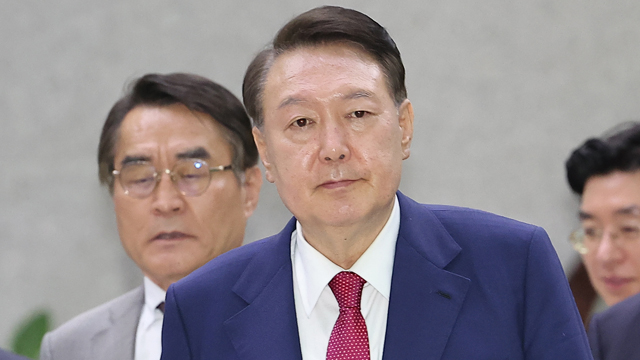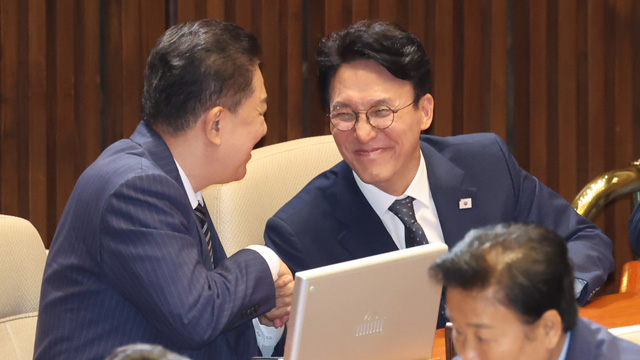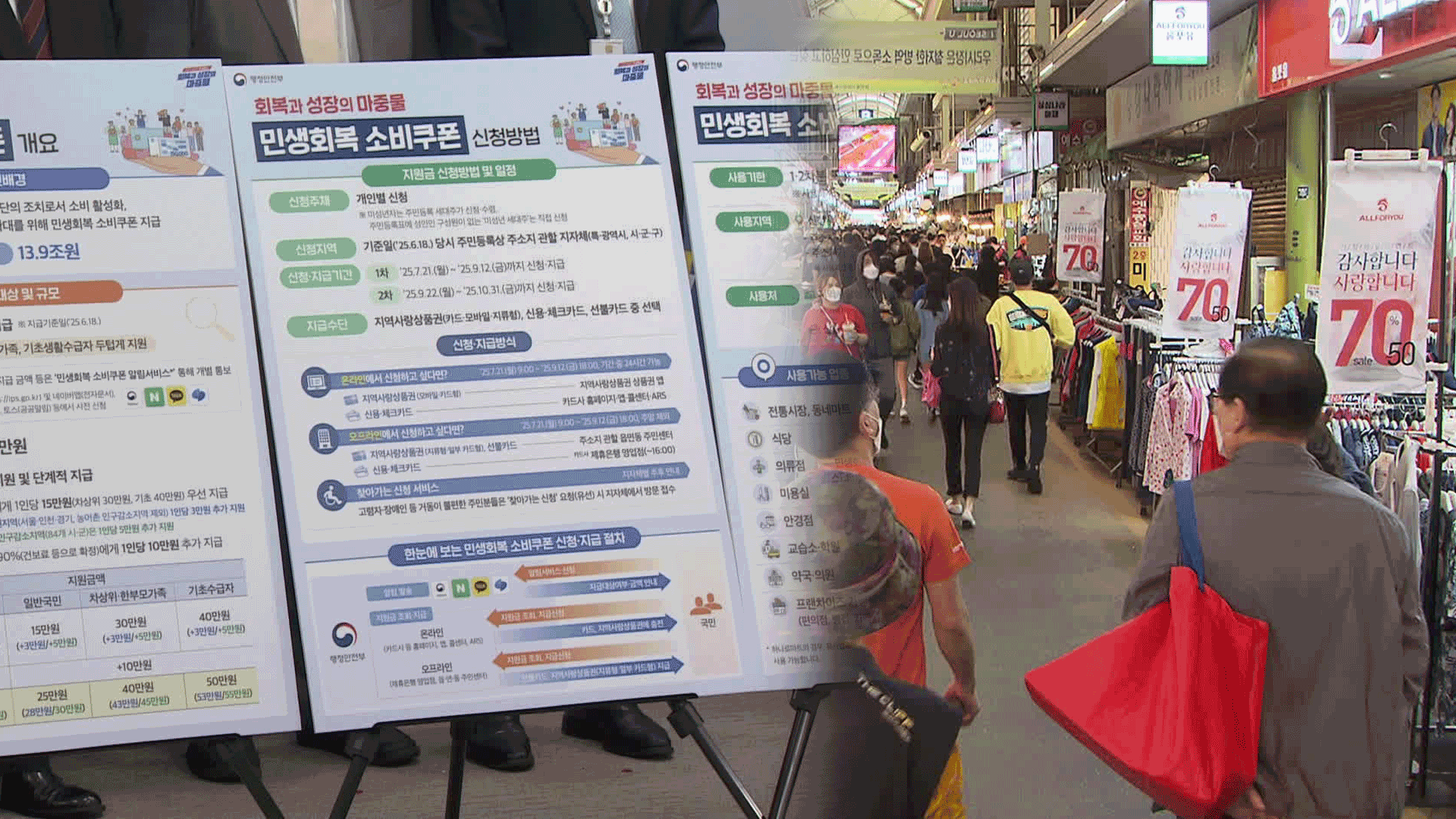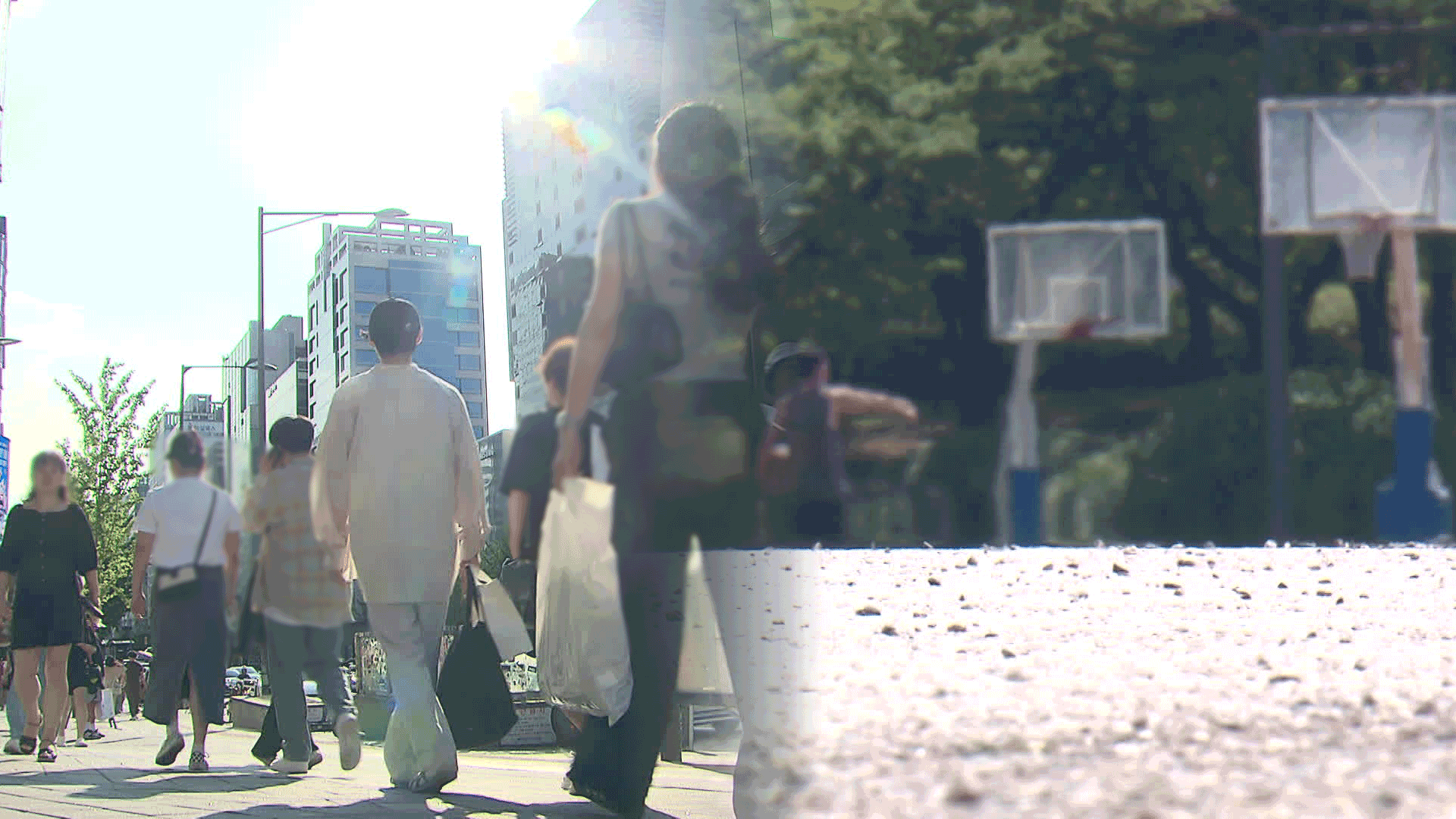[News Today] Manufacturers face US tariff-hit
입력 2025.04.10 (16:16)
수정 2025.04.10 (16:17)
읽어주기 기능은 크롬기반의
브라우저에서만 사용하실 수 있습니다.
[LEAD]
Overnight, financial markets saw significant shifts as President Donald Trump announced a 90-day pause on new tariffs for many countries, sparking a sharp rally. Amidst these changes, major corporations are contemplating moving their production bases to the United States. This raises serious concerns about the potential disappearance of South Korea's own local manufacturing regions.
[REPORT]
Gunsan was once home to a General Motors plant which drew over 20-thousand people to the area.
KBS News, 2006 /
Facilitate the local economy in Jeollabuk-do Prov.
Then, seven years ago, shocking news broke of the plant's shutdown.
KBS News, 2018 /
As many as 10,000 people lost jobs in Gunsan.
KBS visited the city to see if it had recovered.
Faded signs, rusty iron gate, the place is frozen in time to that fateful day of closure.
It wasn't just one factory ending its business.
People left too.
Employee of nearby factory / (VOICE MODIFIED)
As plants shut down, Gunsan citizens also left.
A restaurant street at lunch time that should be bustling with workers remains very quiet.
Kim Hyung-hee / Oshikdo-dong advancement association
We are barely holding on. Dependence on corporations is high. Some people hold out by even taking out debt.
This same kind of situation can now happen elsewhere.
Amid sweeping U.S. tariffs, there's even talk of GM's Bupyeong plant in Incheon shutting down, sending jitters across the region.
Nearby vendor of GM Bupyeong plant / (VOICE MODIFIED)
Half of customers are from GM. It's a significant number.
As U.S. President Donald Trump uses tariffs as a weapon to resuscitate America's Rust Belt, referring to areas where manufacturing is in decline, industrial belts in South Korea could become 'rusty' as a result.
Ahn Duk-geun / Minister of Trade, Industry and Energy
The auto sector is backbone of our economy responsible for 340,000 jobs. It's difficult to revive the ecosystem of 20,000 parts manufacturers once it crumbles.
The government has pledged to inject an additional two trillion won or some 1.4 billion dollars in policy finance to the automobile sector this year.
■ 제보하기
▷ 카카오톡 : 'KBS제보' 검색, 채널 추가
▷ 전화 : 02-781-1234, 4444
▷ 이메일 : kbs1234@kbs.co.kr
▷ 유튜브, 네이버, 카카오에서도 KBS뉴스를 구독해주세요!
- [News Today] Manufacturers face US tariff-hit
-
- 입력 2025-04-10 16:16:22
- 수정2025-04-10 16:17:44
[LEAD]
Overnight, financial markets saw significant shifts as President Donald Trump announced a 90-day pause on new tariffs for many countries, sparking a sharp rally. Amidst these changes, major corporations are contemplating moving their production bases to the United States. This raises serious concerns about the potential disappearance of South Korea's own local manufacturing regions.
[REPORT]
Gunsan was once home to a General Motors plant which drew over 20-thousand people to the area.
KBS News, 2006 /
Facilitate the local economy in Jeollabuk-do Prov.
Then, seven years ago, shocking news broke of the plant's shutdown.
KBS News, 2018 /
As many as 10,000 people lost jobs in Gunsan.
KBS visited the city to see if it had recovered.
Faded signs, rusty iron gate, the place is frozen in time to that fateful day of closure.
It wasn't just one factory ending its business.
People left too.
Employee of nearby factory / (VOICE MODIFIED)
As plants shut down, Gunsan citizens also left.
A restaurant street at lunch time that should be bustling with workers remains very quiet.
Kim Hyung-hee / Oshikdo-dong advancement association
We are barely holding on. Dependence on corporations is high. Some people hold out by even taking out debt.
This same kind of situation can now happen elsewhere.
Amid sweeping U.S. tariffs, there's even talk of GM's Bupyeong plant in Incheon shutting down, sending jitters across the region.
Nearby vendor of GM Bupyeong plant / (VOICE MODIFIED)
Half of customers are from GM. It's a significant number.
As U.S. President Donald Trump uses tariffs as a weapon to resuscitate America's Rust Belt, referring to areas where manufacturing is in decline, industrial belts in South Korea could become 'rusty' as a result.
Ahn Duk-geun / Minister of Trade, Industry and Energy
The auto sector is backbone of our economy responsible for 340,000 jobs. It's difficult to revive the ecosystem of 20,000 parts manufacturers once it crumbles.
The government has pledged to inject an additional two trillion won or some 1.4 billion dollars in policy finance to the automobile sector this year.
이 기사가 좋으셨다면
-
좋아요
0
-
응원해요
0
-
후속 원해요
0















이 기사에 대한 의견을 남겨주세요.